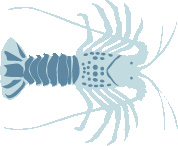Overview
Industry-led FIP was started by Netuno USA, Inc. and local supplier VPAS in 2021. The spiny lobster P. argus fishery is one of the most commercially important marine species and has been one of the most valuable marine species in Venezuela since the 1920’s. They are also ecologically important and a vital part of the artisanal and traditional fishing activity, which has been growing in importance throughout the history of the fishery. The main fishing methods permitted and adopted in Venezuelan spiny lobster fisheries are skin diving and traps. Skin divers use ‘salabardos’ hook to catch the lobster, which are aluminium rods (about 50 cm long), with a plastic loop at the end which ‘lasso’s the loop around the abdomen of the lobster.
Industry-led FIP was started by Netuno USA, Inc. and local supplier VPAS in 2021. The spiny lobster P.
The objective of this FIP is to gather information, conduct a stock assessment for the fishery and engage local authorities and build a precompetitive stakeholders environment to achieve comprehensive status by 2024.

